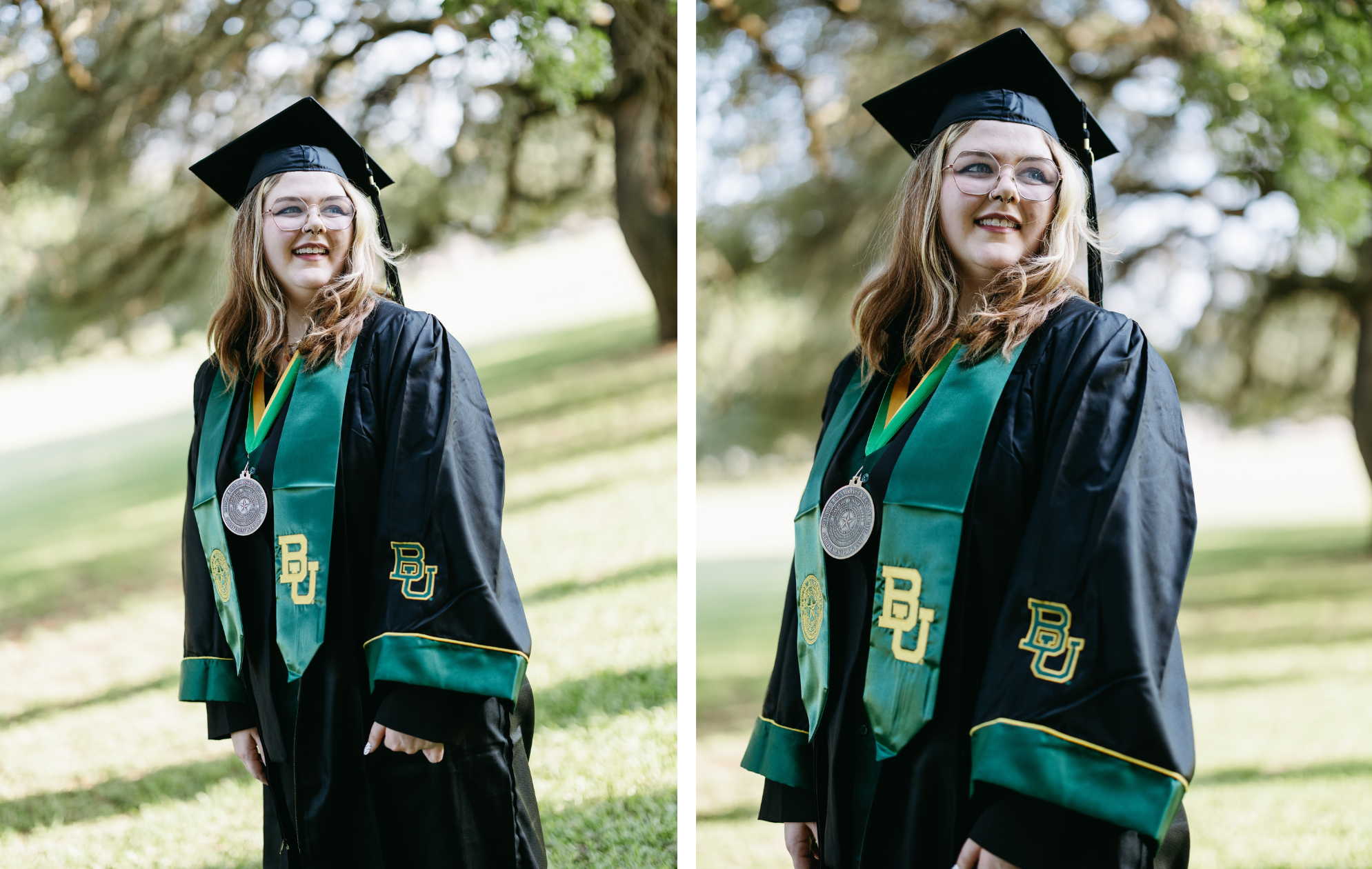For the Stories Still Waiting: A Former Foster Youth's Journey to Healing & Higher Education
By: Katherine H. Squires, B.A. Professional Writing and Rhetoric & McNair Scholar
Partnerships for Children Heart Gallery Community Engagement Specialist
A wild swoosh of Texas wind swirls around me as I climb the steps of the campus library one last time as an undergraduate student. For most of my life, I have gazed wishfully through university library windows as an outsider. But for the past two years, I've had the privilege of studying inside these blessed library corridors. Every time I step through the threshold, it feels like entering a portal of possibility. I scour endless pages—both paper and digital (haha!)—go on treasure hunts for sources, and weave arguments into delicate, persuasive essays. I collect rhetoric like gemstones, and in return for these treasures, my professors offer thoughtful, constructive feedback. If I persuade my professors well, I earn an A. If my work isn't satisfactory, I don't get an A, yet I continue to learn, I revise, and I try again. It's clear, consistent, and most of all—safe.
A sense of safety is a feeling that is still relatively new to me. Looking back on my childhood, school didn't feel safe, and home wasn't always a safe place for me either. How could I embrace learning when the world around me hurt? I grew up hearing things like, "Katie hates school," or "Katie's smart, but her motivation is down here." One teacher even said, "Katie can never be a writer." That hurt. And for a while, I believed them—and so I started shrinking myself to fit into the tiny, ill-fitting boxes of these assumptions. But deep down, there was a part of my spirit that always knew I was more than a bunch of mean words. I'll show them, I began whispering under my breath. I'll prove them all wrong.
As a former foster youth, my story isn't out of the ordinary—and that's a problem. Many of the 400,000 children in the U.S. foster system have been misunderstood, stereotyped, or straight-up dismissed as "unmotivated." I couldn't begin to count how many times I've hear people say things like, "Don't adopt, don't foster—you don't know what you're getting into. Those kids are trouble." And when I hear these things, I just think to myself: how can a child be trouble for wanting love and safety?
I was barely a few months old when I was placed in foster care. I was six when I was separated from my one and only biological sibling. I was nine when I developed a gastrointestinal disease that left me bedridden for six months. I was sixteen when I started my first job, and seventeen when I graduated high school—a year ahead of my peers. At eighteen, I began college. But by twenty, I had to drop out because I could no longer afford the price of tuition. For the next two years, I couch-surfed, camped out in my car, and drifted in and out of homeless shelters. At twenty-two, I finally made my way home to the Methodist Children's Home Independent Living Program—a residency program for struggling young adults without family support.
Slowly but surely, my tragic narrative began to shift into one of hope. At twenty-two, I received my associate's degree and transferred to Baylor University—this time, with secured funding. At twenty-three, I became a Ronald E. McNair Scholar and presented my research on how to support foster youth success at two national conferences. And now, at twenty-four, I'm preparing to walk the graduation stage and receive my Bachelor of Arts in Professional Writing and Rhetoric. Not only will I be accepting my first bachelor's degree (one eight years in the making), but I will be accepting it as evidence that my words once used to defend myself have now blossomed into tools with the power to advocate, to educate, and to heal.
With these words, I can now confidently say that I am hopeful. I am blessed. I am resilient. And I am proud of myself. Each and every step of my story has taught me that college is not just for the privileged few—it is aspirational, accessible, and attainable, no matter who you are or where you come from. I am living proof that through the power of words, each and every one of us has the ability to change our own narrative. While I've been able to find my voice through the obstacles I've faced, there are still many children in the foster care system who are waiting for the chance to find theirs. We only have to give them pen, paper, and a whole lot of love, unconditionally.
